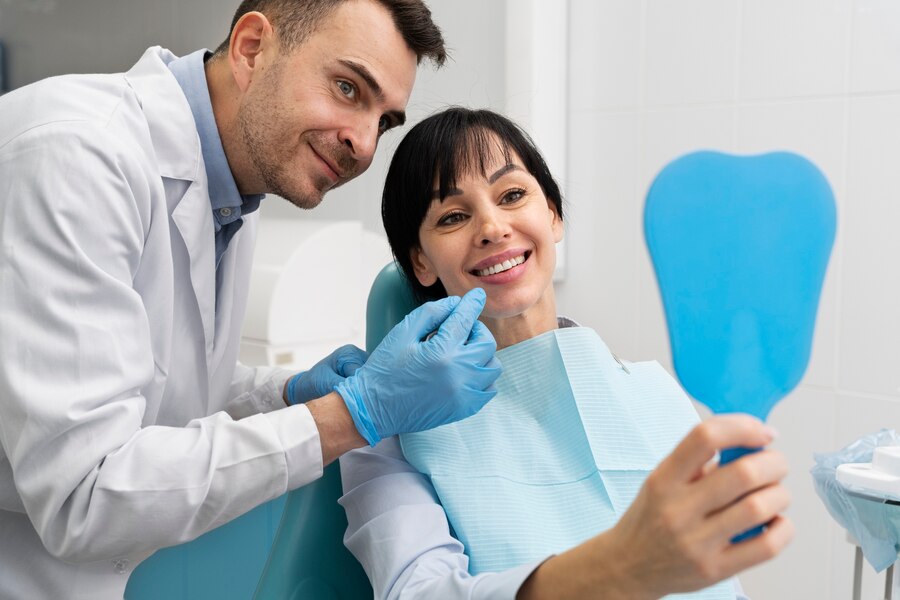

Preventive dental care is an essential part of maintaining optimal oral health and avoiding common dental problems. It focuses on proactive measures to prevent tooth decay, gum disease, and other oral health issues before they develop. By visiting your dentist regularly for preventive treatments, you can ensure that your teeth and gums stay healthy, preventing more serious problems in the future. Regular check-ups and cleanings are crucial in maintaining your overall health and achieving a confident, bright smile.
Professional cleanings, also known as prophylaxis, are an essential component of preventive dental care. Even with regular brushing and flossing, plaque and tartar can build up on your teeth. During a cleaning, a dental hygienist will remove plaque, tartar, and bacteria from your teeth and along the gum line, reducing your risk of developing cavities and gum disease.
Routine dental exams help detect problems early when they are easier and less expensive to treat. During an exam, your dentist will check for signs of cavities, gum disease, oral cancer, and other potential issues. Regular exams also allow your dentist to monitor changes in your oral health over time and provide tailored advice for maintaining good oral hygiene.
Fluoride treatments are an excellent way to protect your teeth from cavities and strengthen enamel. Fluoride helps remineralize tooth enamel, making it more resistant to the acids that cause tooth decay. Fluoride treatments are especially beneficial for children, individuals prone to cavities, or those with exposed tooth roots due to gum recession.
Dental sealants are thin, protective coatings applied to the chewing surfaces of back teeth to prevent cavities. These areas are particularly prone to decay because of their deep grooves, which can trap food and bacteria. Sealants provide an extra layer of protection, keeping cavities at bay and maintaining the health of your teeth.
Oral cancer screenings are part of a comprehensive dental exam. The dentist will examine the tissues in your mouth for any signs of abnormalities or potential cancerous growths. Early detection of oral cancer increases the chances of successful treatment, making these screenings an important preventive measure.
Preventing gum disease starts with regular check-ups and cleanings. Your dentist will monitor your gum health, checking for signs of gingivitis or periodontitis. Early detection and treatment of gum disease can help prevent tooth loss and other serious oral health issues. Your dentist may also recommend lifestyle changes, such as quitting smoking or improving your diet, to help prevent gum disease.
1. How often should I visit the dentist for preventive care?
It is recommended that most people visit the dentist every six months for regular check-ups and cleanings. However, some patients with specific oral health concerns may need to visit more frequently. Your dentist will advise you on the best schedule based on your needs.
2. What are the benefits of fluoride treatments?
Fluoride treatments help strengthen tooth enamel, making teeth more resistant to decay. They are especially beneficial for children, those with a history of cavities, and individuals who have dry mouth or gum disease.
3. What are dental sealants, and how do they work?
Dental sealants are thin coatings applied to the chewing surfaces of your back teeth. These teeth have deep grooves that can trap food particles and bacteria, leading to cavities. Sealants provide a protective barrier to prevent decay from forming in these hard-to-clean areas.
4. Why are regular cleanings important even if I brush and floss daily?
While brushing and flossing are essential, they cannot remove all the plaque and tartar that build up on your teeth. Professional cleanings ensure that your teeth are thoroughly cleaned and that plaque and tartar are removed from hard-to-reach areas, helping prevent cavities and gum disease.

Copyright@2024, Cupertino Wisdom Teeth Extraction Dentist